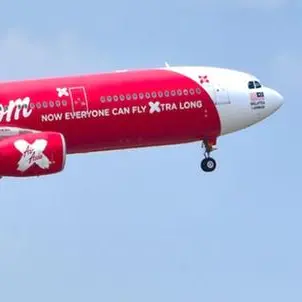By Georgina Prodhan
FRANKFURT, May 4 (Reuters) - Siemens
The German industrial group, present in Iran since it built the Indo-European telegraph in the 19th century, said the revaluation had boosted second-quarter revenue by 174 million euros ($200 million) and profit by 130 million euros.
"This is a one-off effect due to the resurgence of business expectations," Chief Financial Officer Ralf Thomas told reporters on a conference call. "The backlog can be worked through because the sanctions have been lifted."
The revaluation partially reverses a 2012 writedown of the value of its Iranian business after restrictions were tightened, causing a hit of 347 million euros to its profit.
Munich-based Siemens maintained an office in Tehran throughout sanctions regimes imposed by the United Nations, United States and European Union over Iran's nuclear ambitions.
Having reluctantly stopped all new business in Iran in 2010, it has been quick to seize opportunities since sanctions were eased in January and was the first major German company to agree a deal with Iran this year.
Siemens signed memoranda of understanding in March on rail infrastructure and gas equipment projects potentially worth billions of euros, as well as an energy agreement with Iranian power and infrastructure group Mapna.
Chief Executive Joe Kaeser, who said in February Siemens wanted to pick up in Iran where it had left off, cautioned that the impact of new business there would not be material either this year or next.
"We'll take time, we'll talk to customers to see what is possible and what is not, and then we'll take it from there. So we are very calm about it, we see the opportunity and we support our customers and then see what the outcome will be," he said.
But Iran's pent-up need for oil and gas equipment, transport infrastructure and healthcare equipment speak to many of Siemens' strengths, and its long history in the country means it still has a foothold despite the emergence of strong competitors, mainly from China, during the sanctions.
Siemens stopped doing new business with Iran in 2010 but continued to service existing contracts as long as they did not contravene sanctions.
Siemens had been slammed for selling telecoms equipment that was used to spy on dissidents in Iran. Industrial equipment supplied by the company and used among other things to control Iranian nuclear centrifuges was targeted by the Stuxnet computer worm discovered in 2010.
Germany was Iran's biggest trading partner for decades before sanctions were imposed, and German companies hope exports to Iran will double to 5 billion euros in the coming years and quadruple in the medium term.
Raising financing is a problem although one obstacle may soon be removed if Iran repays old debts arising from state guarantees for German exports, clearing the way for fresh guarantees to be issued.
Banks who do business with the United States are still nervous about the legality of financing Iranian deals, due to remaining U.S. sanctions -- a problem that Chinese companies financed by Chinese banks generally do not face.
Siemens CFO Thomas declined to comment on how Siemens was arranging finance for its projects, or how much the company's order backlog was currently worth.
"It's kind of bumpy to get financing in place for all players in the game but I think as the sanctions have been lifted and since the political processes are proceeding, we will see some easing in the quarters to come," he said.
($1 = 0.8693 euros)
(Editing by Catherine Evans) ((georgina.prodhan@thomsonreuters.com; +49 69 7565 1279; Reuters Messaging: georgina.prodhan.thomsonreuters.com@reuters.net))
Keywords: SIEMENS RESULTS/IRAN
FRANKFURT, May 4 (Reuters) - Siemens
The German industrial group, present in Iran since it built the Indo-European telegraph in the 19th century, said the revaluation had boosted second-quarter revenue by 174 million euros ($200 million) and profit by 130 million euros.
"This is a one-off effect due to the resurgence of business expectations," Chief Financial Officer Ralf Thomas told reporters on a conference call. "The backlog can be worked through because the sanctions have been lifted."
The revaluation partially reverses a 2012 writedown of the value of its Iranian business after restrictions were tightened, causing a hit of 347 million euros to its profit.
Munich-based Siemens maintained an office in Tehran throughout sanctions regimes imposed by the United Nations, United States and European Union over Iran's nuclear ambitions.
Having reluctantly stopped all new business in Iran in 2010, it has been quick to seize opportunities since sanctions were eased in January and was the first major German company to agree a deal with Iran this year.
Siemens signed memoranda of understanding in March on rail infrastructure and gas equipment projects potentially worth billions of euros, as well as an energy agreement with Iranian power and infrastructure group Mapna.
Chief Executive Joe Kaeser, who said in February Siemens wanted to pick up in Iran where it had left off, cautioned that the impact of new business there would not be material either this year or next.
"We'll take time, we'll talk to customers to see what is possible and what is not, and then we'll take it from there. So we are very calm about it, we see the opportunity and we support our customers and then see what the outcome will be," he said.
But Iran's pent-up need for oil and gas equipment, transport infrastructure and healthcare equipment speak to many of Siemens' strengths, and its long history in the country means it still has a foothold despite the emergence of strong competitors, mainly from China, during the sanctions.
Siemens stopped doing new business with Iran in 2010 but continued to service existing contracts as long as they did not contravene sanctions.
Siemens had been slammed for selling telecoms equipment that was used to spy on dissidents in Iran. Industrial equipment supplied by the company and used among other things to control Iranian nuclear centrifuges was targeted by the Stuxnet computer worm discovered in 2010.
Germany was Iran's biggest trading partner for decades before sanctions were imposed, and German companies hope exports to Iran will double to 5 billion euros in the coming years and quadruple in the medium term.
Raising financing is a problem although one obstacle may soon be removed if Iran repays old debts arising from state guarantees for German exports, clearing the way for fresh guarantees to be issued.
Banks who do business with the United States are still nervous about the legality of financing Iranian deals, due to remaining U.S. sanctions -- a problem that Chinese companies financed by Chinese banks generally do not face.
Siemens CFO Thomas declined to comment on how Siemens was arranging finance for its projects, or how much the company's order backlog was currently worth.
"It's kind of bumpy to get financing in place for all players in the game but I think as the sanctions have been lifted and since the political processes are proceeding, we will see some easing in the quarters to come," he said.
($1 = 0.8693 euros)
(Editing by Catherine Evans) ((georgina.prodhan@thomsonreuters.com; +49 69 7565 1279; Reuters Messaging: georgina.prodhan.thomsonreuters.com@reuters.net))
Keywords: SIEMENS RESULTS/IRAN




















